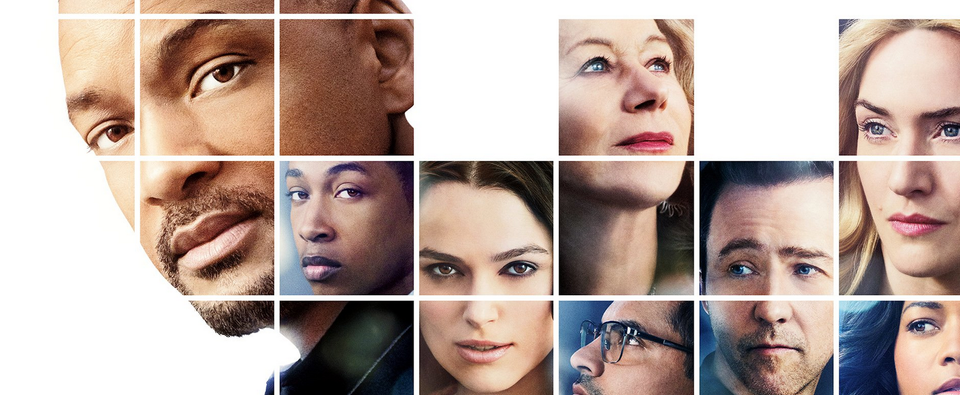Voice
It's one of the things which pulls a reader deep into a story, or maybe forces them all the way out.

What matters in a novel?
Obviously, story matters, and while we could probably find a broad definition of story which suits everyone, the precise details would differ. Story is built of many things. Who, the characters. Where and when, the setting and its history. What, the events which constitute the plot and the decisions made by the characters. Why, the motivations of the characters. There’s also theme, that core idea the writer hopefully had fully in mind during the creative process. And there’s one more thing, one thing which can draw the reader deep into the story or act as a forcefield, pushing them out.
Voice.
Like all Breadcrumbs, what I’m going to say should not be viewed as a gospel, how-to-write guide. It’s much too grounded in my personal tastes for that. But I have *opinions* on the importance of voice and you are free to disagree.
A story from the writing of my novel, Unregistered. It has two main characters who interact and share chapters on a number of occasions. Originally, during the first draft, both characters were written in first-person. First-person is great at transmitting voice, at getting into a character’s mind and showing the story through their filters. The problem I had at that point was I found it difficult to differentiate the voices of each of the protagonists. I had intended for them to share characteristics and to differ in important ways, but their voices in the text sounded much, much too close. It was as if I was only writing one character. In the finished novel, one protagonist is written in first-person, the other in third-person.
Subsequent works of mine, as yet unfinished and unpublished, tend towards first-person narration, mostly to get into the head of the protagonist. I’m completely happy to revise into third-person, because close third-person can retain most of the voice of first-person. One of those works is a prequel to Unregistered. The main character, Ricky, is very different to the first-person protagonist of Unregistered, Red Line. Their voices have to be different. Ricky is young and foolish and prone to bursts of stupidity. Red Line is older, wiser, cold and cynical. I couldn’t possibly dream of writing them with the same voice. It would be jarring to me as a reader if a twenty-something young man spoke and thought the same way as a much older, smarter person.
But, from what I have found, many writers don’t agree with me, new authors and experienced ones alike. I have two examples of what I believe is voice done not wrongly, not exactly, but of voice which rather than reflecting who the narrator is, rather reflects what the writer considers to be good writing. There’s also an example of voice done perfectly, which matches the character.
Example one – Darrow from Red Rising. At the time of writing, I’ve only just started reading Red Rising. It’s good, no doubt about that, but even in the first chapter, something about it struck me as wrong. Something not genuine. The voice did not come from Darrow himself. It couldn’t. The voice was too showy, too writerly. As though Darrow speaks, narrates, not with Darrow’s own voice, but with Pierce Brown’s.
Like this: “The tunnel walls around my holster seat are bathed a sulfurous yellow by a corona of light.” Or: “My uncle is weak. He is cautious and immoderate in his drink, a pale shadow of my father.” Or: “A cadre of Tinpots eye us as we trudge by over the worn concrete floor.”
Lovely, evocative writing. Well done, Mr Brown. Here’s my issue with it: Darrow is not a student of letters. Darrow is a sixteen-year-old boy, born into a caste of miners, treated like a slave, who operates a drill and narrates his story like a novelist. Unless his culture has a rich, deep tradition of oral story-telling, his vocabulary does not match his background. From the text, from the dialogue between Darrow and his peers, it’s clear his clan don’t tell their stories like a novelist.
While reading Red Rising, I am aware that I am reading fiction. Pierce Brown flashes his talents at us. The artifice is all too visible. Darrow’s voice has many, many moments of inauthenticity. It is making it hard for me to settle into the story and had Brown instead written Red Rising in a close third-person, voice would immediately cease to be an issue.
Example two: Bernie Moon in Broken Light. Broken Light is an interesting book. Its greatest strength is character. It has two separate characters revealing the story and Joanne Harris built both perspectives incredibly well; and both perspective characters are fully fleshed-out and believable. So much so that Harris has been accused by many readers of misandry because of the convincing nature of Bernie’s opinion of men. One perspective takes place through sections of a memoir written by the more minor of the perspective characters, and it reads very nicely indeed, just like you would expect a ghost-written or heavily edited memoir to read.
But Bernie’s own voice, written in first-person, comes to us as a long series of LiveJournal excerpts. Darrow narrating his own story like a novelist would is, though understandable in a novel, not always excusable. Bernie…well, Bernie tells her story in a journal, so Harris’ writerly style is less intrusive, but it still intrusive.
Here: “We have the same dark, jaw-length hair, the same fringe, the same vivid faces.” Or: “I tried to ignore him. I wasn’t afraid, and yet I could feel his aggression, like heat.” Or: “And then, there’s a feeling of slipping away, like a train going into a tunnel, and a muddled, half-waking memory of darkness, and the cold night sky, and the petrichor scent of soft damp earth, and the tinny ghost of Neneh Cherry playing into nothingness.”
Again, love the writing. It’s great. Very, very writerly. But, again, it reeks of inauthenticity. Bernie’s memories are being recounted in a LiveJournal, but she writes like a novelist, and once more I am not reading a story told by the protagonist, I am reading a story told by the writer. It’s not quite so jarring here in Broken Light, but it is still not entirely genuine. Bernie’s LiveJournal isn’t written as a journal, it is written as a novel and I can’t escape from that feeling.
Example three: Snoopz in Who They Was. Oh boy. This is how you do voice. Who They Was is an autobiographical novel written by Gabriel Krauze. He was a criminal running with the gangs in London and it’s a story of crime and violence and inner turmoil. Even though it’s more memoir than Red Rising or Broken Light, it doesn’t read like memoir. There’s much too much energy for that. It doesn’t read like a novel either – the structure is wrong. It sits between the two forms, and while mostly a fantastic read, it doesn’t have a rigid narrative structure. But the voice, my God, the energy.
Because it’s autobiographical in origin, Snoopz gets to have Krauze’s voice. If Snoopz ever narrates in a literary, writerly way, it’s valid, because while Krauze was attending university, studying English literature, he was still active in his gang. Krauze gets to write about gangster life with a novelist’s flair.
See here: “And for a few heartbeats I notice how everything on the street seems like someone’s idea of a peaceful life, sun floating overhead, bulging in the sky’s belly, washing the street below in a brightness that breaks over everything…” and “And we’ve fucked up the timing but we can still get her on her doorstep so we start running, still tryna be stealthy…” and “And now Gotti is saying you’re sick fam you’re sick, proper bigging me up to Tyrell – Snoopz is sick you know…”
And everything in it fits. Everything feels real and genuine. Snoopz narrates like a student of literature when a philosophical or artistic outlook is warranted; and like a gangster when he is being a gangster. It works.
So, to conclude, here’s the Breadcrumb: voice is an essential component of good fiction. The closer the perspective gets to the protagonist, the stronger the voice can become. But here’s the rub: if I, as a writer, wish to wax poetic, then it behoves me to ensure that the language my narrator uses matches the background and voice of the narrator. It’s not such a big deal with third-person narration because the narrator and the characters are not the same. Third-person lets a writer get exactly as purple in their prose as they wish. In first-person, I have to be much more careful. The moment the voice fails to reflect the character it belongs to is the moment the reader begins to be driven away.



